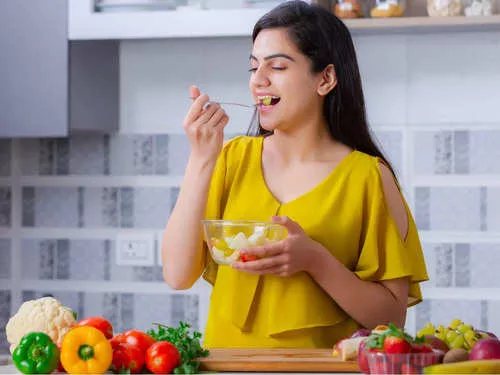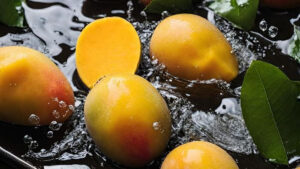12 healthy eating tips for Diwali; Read to know more.

12 healthy eating tips for Diwali; Read to know more.
By: Pune Pulse
November 9, 2023
Pune: Nutritionists advise eating in moderation during Diwali festivities, as consuming sweets and snacks such as laddoo, gulab jamun, murukku, and chakli, which are primarily carbohydrate and fat-based, can lead to an increase in dopamine response and cravings. With rising cases of obesity, diabetes, hypertension, and fatty liver, it is important to be mindful of the unhealthy aftereffects of binging on these foods during the run-up
One of the common justifications for overeating during Diwali is the belief that food is an integral part of the festivities. The traditional notion has been overshadowed by modern practices such as ordering food delivery and dining out, resulting in the inclusion of items like pizza in the festive fare.
It is important to consider the religious rituals and ceremonies that accompany them. In the past, our traditional food was prepared with the recitation of sacred mantras in the background. However, the introduction of commercial food has diminished the spiritual significance of these meals. Many suggest that a better approach would be to stick to simple, home-cooked meals during parties and limit the order to just one dish.
1. It is important to exercise moderation when indulging in your favorite delicacies during festive occasions. Controlling the portion sizes can assist in managing the consumption of excess calories. Opt for smaller portions on your plate and refrain from refilling it.
2. Prioritize including foods that are high in dietary fiber as the main component of your meal.
3. If feasible, consider organizing a lunch party during the daytime rather than in the evening.
4. Before attending a party or gathering, consume a piece of fruit or a small meal.
5. Refrain from fasting for the entire day before attending a party, as this does not aid in controlling your food intake and may lead to overeating.
6. Begin your meal with a liquid option such as soup, buttermilk, or lime water to decrease your appetite.
7. It is recommended to avoid sugar-sweetened beverages. Incorporate protein-rich foods like pulses, sprouts, curd, buttermilk, grilled chicken, or fish to enhance satiety.
8. Prioritize between a fried savory snack and a sweet delicacy, and avoid consuming both simultaneously. Opt for roasted or baked savory snacks instead of deep-fried ones.
9. When selecting desserts, choose milk-based options over deep-fried ones, such as rasgulla over gulab jamun.
10. Choose drinks without added sugar when drinking. Stay hydrated by consuming 2-3 liters of fluids in the form of soups, smoothies, lime water, coconut water, infused water, etc., in addition to water.
11. Avoid consuming packaged, ready-to-eat foods as they contain fewer nutrients.
12. Regular exercise for at least 30 minutes can help maintain weight during festive seasons. Choose activities that you enjoy, such as brisk walking, jogging, Zumba, aerobics, yoga, Pilates, HIIT, or strength training.









